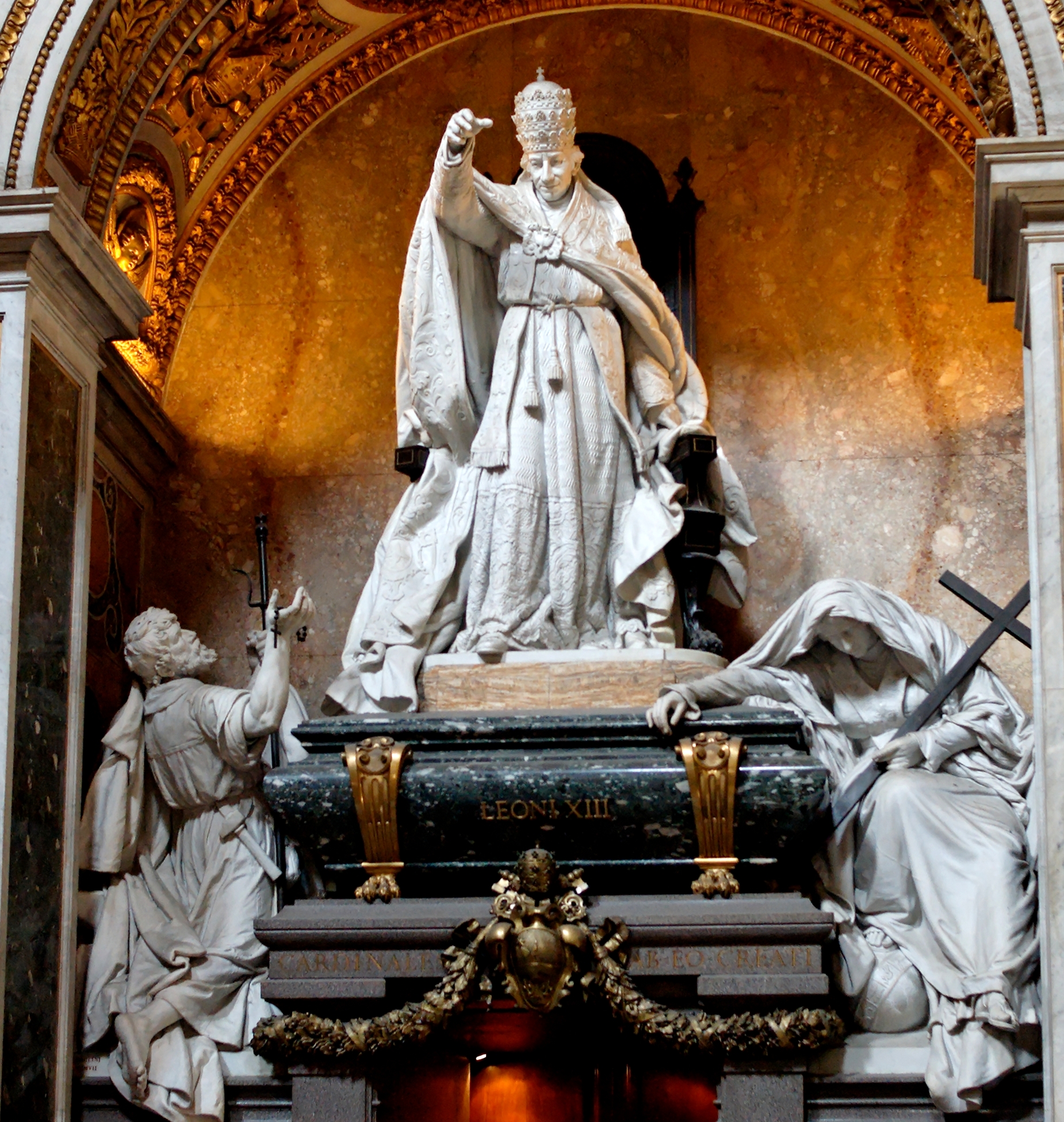
Home
 Pope Leo XIII: Bicentenary of Birth Scott 1445 (2010) On July 20, 1903, Pope Leo XIII passed away, ending a twenty-five year pontificate which, at the time, was the third-longest in history (after Saint Peter and Pope Pius IX). Gioacchino Vincenzio Pecci was born in Capineto, south of Rome and studied at Viterbo, the Roman College and the Academy of Noble Ecclesiastics. Pecci was ordained in 1837. He joined the papal service at Benevento and later Perugia where he proved his administrative abilities. One of his early tasks was to quell banditry in the province. After service as nuncio to Belgium in 1846, he was appointed Bishop of Perugia where he served from 1846-1878. Pope Pius IX appointed Pecci as cardinal in 1852. He revived Thomism at Perugia’s seminary, founding the Academy of St. Thomas in 1859. As bishop he promoted a ‘rapprochment’ between Catholicism and contemporary culture. In 1877 Pope Pius IX appointed Pecci as camerlengo, a position which Pecci fulfilled at Pius’ death in 1878 when he administered the Church in the absence of a pope. He was elected on the third ballot in 1878 and was crowned pope in the Sistine Chapel because the new Italian government feared demonstrations if he blessed the crowd from the loggia of St. Peter’s. He was the first pope elected after the Italian government seized Rome in 1870, reducing a pope’s governmental responsibilities to Vatican City. At the time of his election Pecci was in frail health and was not expected to serve many years. However Leo XIII reigned for 25 years, from 1878 to 1903. Historian J.N.D. Kelly writes: "Leo’s main achievement was his attempt, within the framework of traditional teaching, to bring the church to terms with the modern age. …His distinctive contribution was the opening up of dialogue between the church and society in striking pronouncements."He promoted Thomism by founding a Roman academy, as he did previously in Perugia. Leo also encouraged the study of astronomy and natural sciences. In 1881, he opened the Vatican Secret Archives to qualified scholars without restrictions. He encouraged critical methods in Biblical research. Leo XIII issued a series of encyclicals addressing contemporary society and politics, including Immortale Dei (1893, defining spheres of religious and political influence in society and affirming the legitimacy of government as long as it ensured the general welfare of the governed), Diuturnum illud (1881, providing recognition to democracy), Libertas praestatisssimum (1888, for the church as custodian of true liberty), and Rerum novarium (1891, which upheld private property, social justice, and worker’s rights). 

 Centenary of the Issuance of the Papal Encyclical Rerum Novarum Scott 882-884 (1991) These and other writings condemned socialism, communism, and nihilism. Leo XIII exhibited deep personal piety with devotion to the Blessed Virgin Mary and the praying of the Rosary. He instituted the Feast of the Holy Family and consecrated the human race to the Sacred Heart of Jesus during the Jubilee Year of 1900. Upon his death in 1903, Pope Leo XIII was initially interred at Saint Peter's Basilica. However, in 1924, his remains were moved to the Basilica of Saint John Lateran, a church in which he took a particular interest. The move was shrouded in secrecy, due to the pope being a "prisoner of the Vatican" following the fall of Rome in 1870.  Tomb of Pope Leo XIII Basilica of Saint John Lateran Photo by Marie-Lan Nguyen From Wikimedia Commons, used under the terms of the Creative Commons Attribution 2.5 Generic license With the election Cardinal Robert Prevost as the new pope in May of 2025, and his taking of the name Leo XIV, there has been a renewed focus on the life and legacy of Pope Leo XIII. He was a pope who was expected to be a "stopgap" upon his election, but he turned out to be one of influence on both Church doctrine and on the role of the Church in the social context of an evolving world. REFERENCES: |